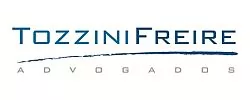On February 8, 2017, the Brazilian Superior Court of Justice (STJ) ruled that the Central Office of Collection and Distribution (ECAD) has the right to collect fees over the performance of streaming services, a technology that broadcasts multimedia information to users through data transfer without the need of downloading the content, used on services such as Spotify and Google Play.
The debate was based on an article of the Brazilian Copyright Law that forbids the public reproduction of music without its author or owner's prior and express consent. ECAD's main argument was that even within the digital environment, streaming would qualify as public reproduction. The other party in the lawsuit, OI MOVEL, owner of OI FM radio, seeking to avoid being charged copyright fees due to the transmission of music in computers (webcasting streaming), argued that such charge would mean a double collection by ECAD, since OI FM already paid copyright fees due to the musical transmission on standard radio.
Although the lawsuit referred to webcasting streaming, which occurs when the content, either recorded or broadcast live, is made available to the users on the Internet, STJ's decision also affects the simulcasting modality. In this case, there is a simultaneous transmission of content in more than just one conventional media, such as radio or television.
The lawsuit began in 2009, on Rio de Janeiro. At first instance, the sentence was favorable to OI FM. There was an appeal against such decision to the Court of Appeals, who ruled in favor of ECAD at first, but then reviewed the decision and decided for OI FM. After this final decision on the STJ, ECAD may now charge copyright fees due to streaming services. The sentence has not been published yet.
The content of this article is intended to provide a general guide to the subject matter. Specialist advice should be sought about your specific circumstances.


